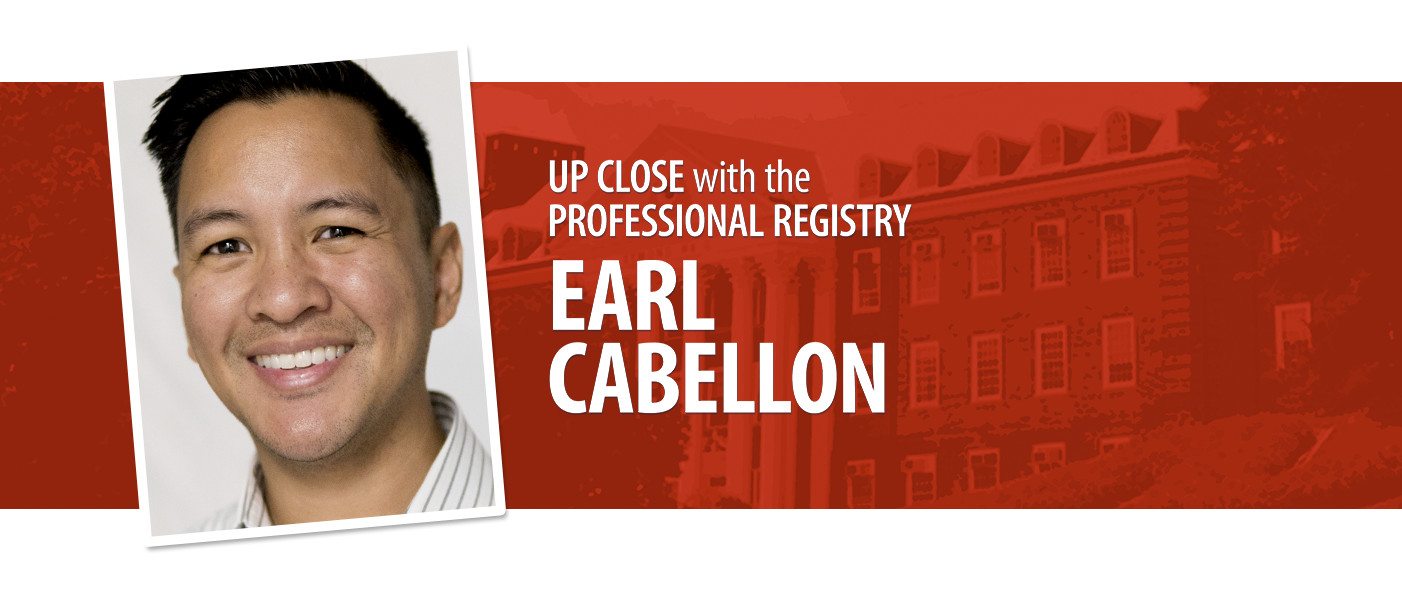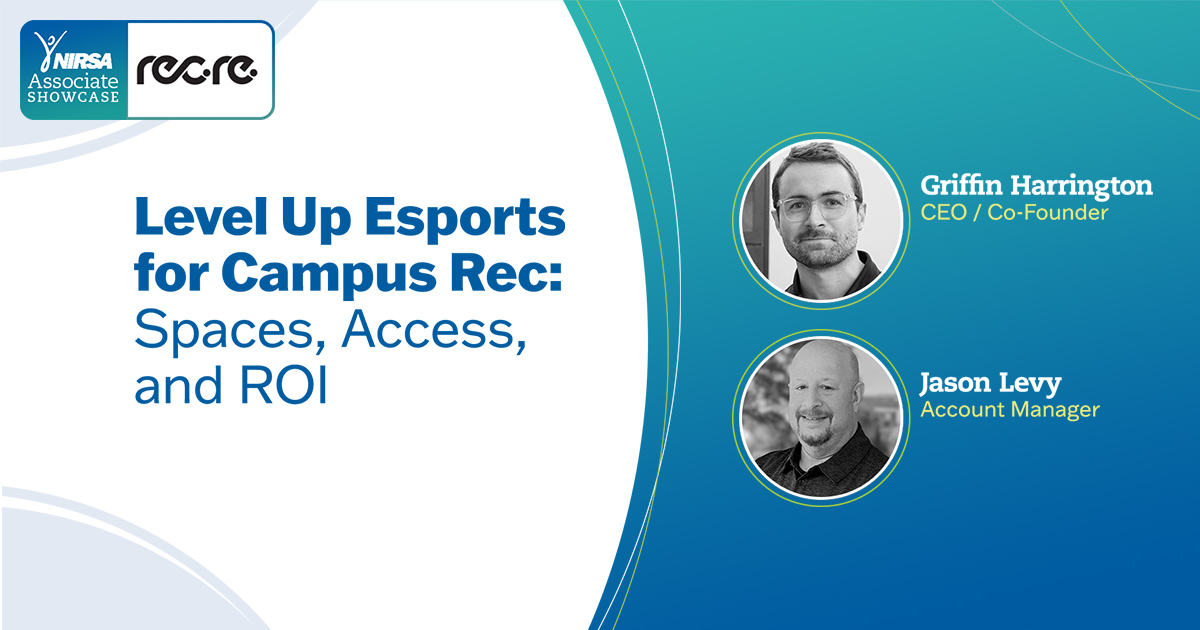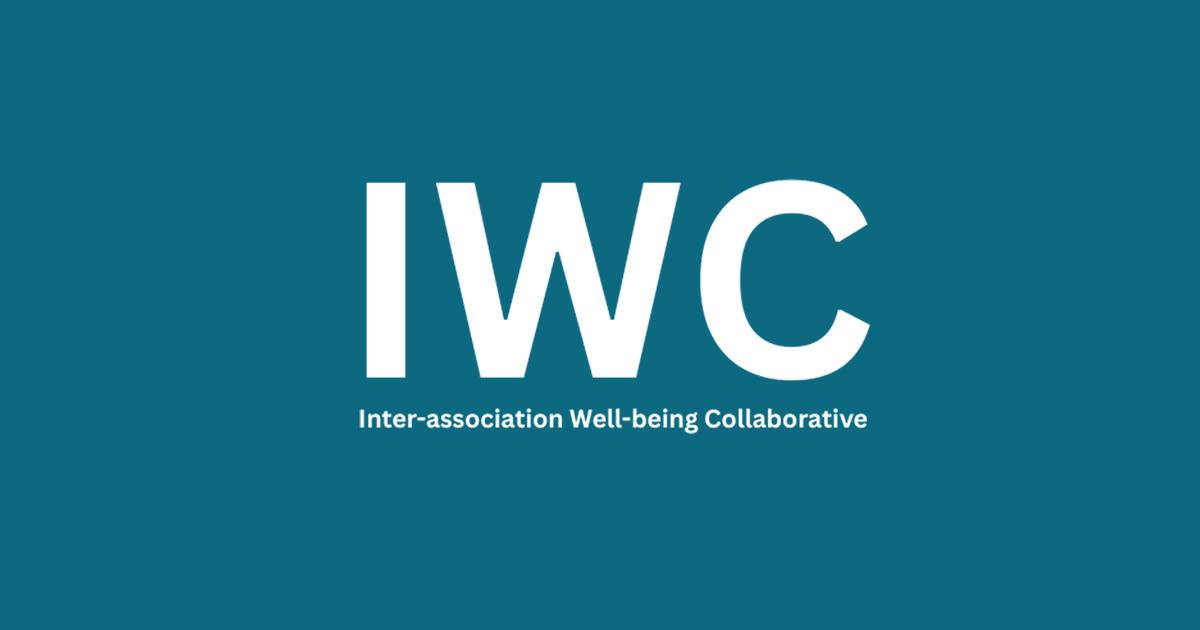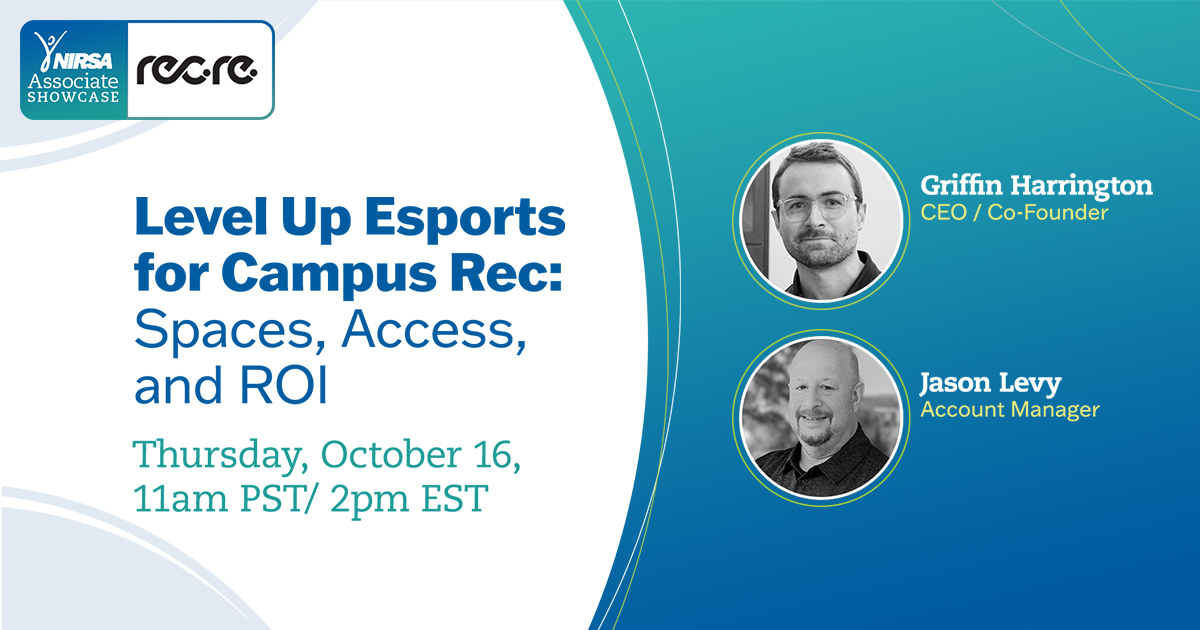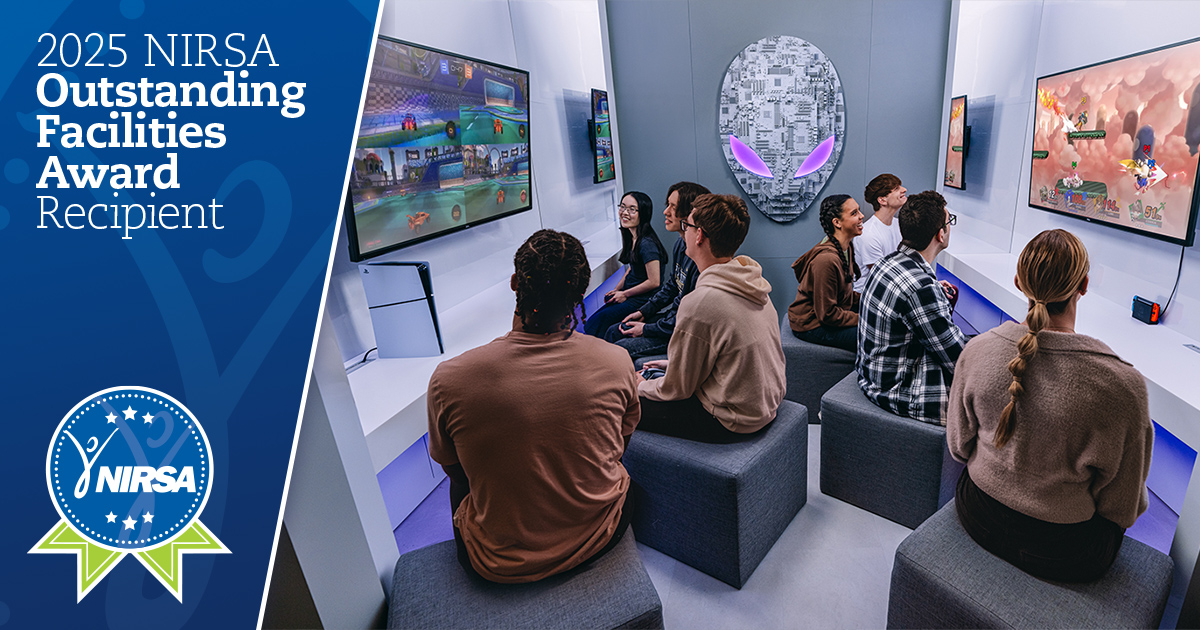Earl Cabellon started his career in collegiate recreation as a student at the University of Rhode Island (URI). It was there that he—someone who already “subscribed living an active lifestyle”—first became invested in the field. He says, “campus recreation appealed to me as a student because of the overall mission—which is to inspire our campus communities to be active and well.” Since his time at URI, Earl has remained committed to the field. This is clearly indicated by his becoming an active member of NIRSA: Leaders in Collegiate Recreation. He currently serves as the Assistant Director for Student Personnel at the University of Maryland and as the Region I Representative for the NIRSA Member Network.
Earl aspires to be a collegiate recreation director one day. In order to achieve this goal, he knows that he needs to commit to ongoing professional development. Not only will professional development positively affect the trajectory of his career, it will allow him to do his current job even better. With these realities in mind, Earl attended the 2014 NIRSA School of Collegiate Recreation. He says, “The School was a great opportunity to learn from faculty as well as network with a cohort of talented professionals.” It was soon after attending the School that, Earl explains, “I came to the realization that in order to grow as a professional in an intentional way I needed to become part of the Registry.”
A commitment to intentional development
The Professional Registry is for professionals—just like Earl—who are truly dedicated to collegiate recreation, who understand that it is important to stay current in the field, and who know learning should take place at every stage of a professional career. Earl—after going from a Student Facility Supervisor at URI to a Graduate Assistant for Facilities at Bowling Green State University to Coordinator for Facilities at the University of Maryland to his current position—thought it was time to really signal that he was “committed to this career path by purposely developing [his] skills.”
The Registry is meant to help collegiate recreation professionals improve the skills they already have as well as broaden those they are less familiar with. When Earl first joined the Registry and looked to develop under NIRSA’s eight Core Competencies, he decided to improve his written communication skills; written communication falls under the Business Management competency.
Earl ended up attending a one-day business writing seminar offered through SkillPath. The seminar taught him the importance of various business writing practices including how to develop compelling proposals and how to write effective executive summaries. He now believes these are writing skills that all “collegiate recreation professionals need to be proficient in.” Earl says that if it wasn’t for his “purposeful learning in Business Management through the Registry, I probably wouldn’t have attended this seminar.” He believes one of the real values of the Registry is that it serves “as a reminder to continue building up more around the competencies I do not have as much experience in.”
The Registry’s impact extends beyond personal growth
What Earl has already learned through joining the Registry has had a definite impact on his work at U of M’s University Recreation & Wellness, also known as RecWell. This is both more broadly—in how he’s improved as a writer, for example—and specifically. “Much of what I do in my role is student training,” says Earl. “Since becoming part of the Professional Registry, I’m more cognizant of my program evaluations, and ensure that those are written prior to the execution of my training. It’s through these evaluations that I determine the success of my training. I use the information to enhance the next training,” he explains. Not surprisingly, Earl believes the competency he’s benefited most from is Human Resource Management.
Earl is so committed to the Registry that he’s actually convinced fellow NIRSA professionals to join. His colleagues who are unsure about the Registry’s value or purpose—or who see it only as a novelty—only need to talk to him to hear all about its very real value. “I see the Registry as something that challenges me to become the most well-rounded professional I can be,” explains Earl. “It holds me accountable to my professional development while at the same time demonstrating my lifelong commitment to continual growth.” For these reasons, Earl plans to be a part of the Registry for many years to come and he includes the RCRSP designation in his email signature.
Like many NIRSA professionals, Earl believes “developing students is the most rewarding aspect of this field.” He says, “I find it gratifying when students tell me their college experience would not have been the same if it wasn’t for RecWell. Or when a student feels prepared for the work force as a result of working for our department.” The Registry, by bolstering his skills as a professional, allows him to better develop the over 900 students he hires annually. It also gets him one step closer to his goal of being a campus recreation director one day. The Registry exists to help dedicated collegiate recreation professionals like Earl reach all of their professional goals.
- For more information about the Registry of Collegiate Recreation Sports Professionals, please contact NIRSA Director of Professional Development Kristen Gleason. You can also read additional Up Close with the Registry features.
Nazifa Islam was previously the Communications Coordinator at NIRSA.


